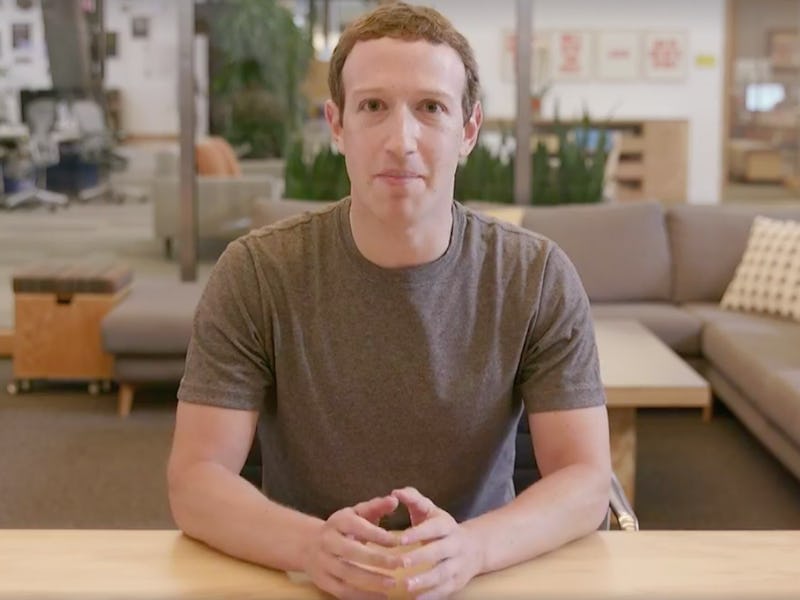Facebook Just Delivered Some Bad News About the Future of Elections
Facebook can't stop what it's created.

After announcing that Facebook will be turning over all political ads posted on its platform by potential Russian propagandists to Congress, company founder and CEO Mark Zuckerberg shared some realistic news in Facebook Live video Thursday.
“I wish I could tell you we’re going to be able to stop all interference, but that wouldn’t be realistic,” Zuckerberg said from his glass-walled office at Facebook’s headquarters in Melo Park, California. “There will always be bad actors in the world, and we can’t prevent all governments from all interference.”
Before he laid out his plan for addressing past and potential future election meddling as Congress sorts through the 3,000-plus ads that Russians paid over $10,000 for during the U.S. presidential election, he was careful not to over-promise. The reality that propagandists are manipulating people on social media with slanted or made-up messages disguised as journalism can’t be good news for the future of elections, nor can the fact that Facebook can’t stop what it’s created.
Zuckerberg also explained how Russians were able to purchase political ads in the first place.
“Most ads are bought programmatically through our apps and website without the advertiser ever speaking to anyone at Facebook,” he said. “That’s what happened here.”
Essentially, he attributed the problem to the kind of automation that has enabled Facebook to become the second-biggest digital ad sales giant in existence last year. (It’s worth nothing that this is the same reason Facebook advertisers have been able to specifically target “Jew haters,” as ProPublica discovered last week.) “The vast majority of our over 5 million advertisers use our self-service tools,” Facebook’s VP of Policy and Communications explained in a blog post published on Thursday.
Though there are a couple obvious reasons Facebook will not change protocol so that advertisers must directly purchase space on your News Feed from a human — a far more labor-intensive process — Zuckerberg framed this matter as one concerning free speech.
“We don’t check what people say before they say it, and frankly, I don’t think our society should want us to,” he said. “Freedom means you don’t have to ask permission first, and that by default you can say what you want.”
“If you break our community standards or the law, then you’re going to face consequences afterwards. We won’t catch everyone immediately, but we can make it harder to try to interfere.”
This, he said, will be achieved in a variety of ways. Facebook’s own internal investigation will continue as the company cooperates with the U.S. government’s inquiry. The company will be making political ads more transparent, a move he said might be “the most important.”
“Not only will you have to disclose which page paid for an ad, but we will also make it so you can visit an advertiser’s page and see the ads they’re currently running to any audience on Facebook,” he explained.
Facebook will also ramp up efforts to share threat information with other tech and security companies, continue taking action against fraudulent accounts, work with the Federal Office for Information Security and election commissions worldwide, and double the size of its election integrity team.
Though he never specifically mentioned using artificial intelligence to identify political operatives looking to exploit the platform, Zuckerberg may have also subtly alluded to it.
“Our sophistication in handling these threats is growing and improving quickly,” he said, harkening to previous statemets from the company on the potential for A.I. to identify “information operations” like fake news stories and help fix the problem at the source.